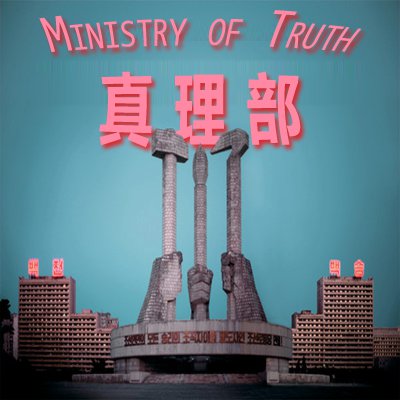The following censorship instructions, issued to the media by government authorities, have been leaked and distributed online. The name of the issuing body has been omitted to protect the source.
Take care to delete the following articles: 1) “Man Who Publicly Wore Large Beard, Instigated Wife to Wear Veil, Sentenced to Six Years”; 2) “Online Publication of Information About Karamay Bungalow Fire Banned.” (March 30, 2015) [Chinese]
The first article ordered for deletion covered the recent sentencing of a Uyghur man to six years in jail for wearing a beard in Kashgar, Xinjiang [Chinese] (see additional context below). The second article references a fire that killed six and injured two last week in Karamay, Xinjiang. While authorities take measures to control news and online discussion regarding Xinjiang, a fire in Karamay likely held special sensitivity. In 1994, a fire broke out in a Karamay theater packed with schoolchildren, killing hundreds. Amid the flames, students and teachers were ordered to remain seated and allow CCP leaders to exit first. This led to the creation of the netizen phrase “leaders first” (让领导先走 ràng lǐngdǎo xiān zǒu), used in criticism of Party officials’ tendency to put their own interests ahead of the needs of the people.
At the Washington Post, Simon Denyer and Xu Yangjingjing report that a Uyghur man in Kashgar has been sentenced to six years in prison for “picking quarrels and making trouble,” allegedly in connection to his repeated refusal to shave his beard. His wife reportedly received a lesser two year sentence after offering a confession for wearing a veil and burqa:
[…T]he six-year jail sentence, reportedly for “picking quarrels and making trouble,” would represent a particularly severe punishment. According to the Kashgar Special Zone News, the 38-year-old man had grown a beard in 2010 and refused to shave it off despite repeated demands from local officials. It was unclear if he faced other charges: the maximum sentence for the reported charge is normally five years.
[…] The original report, issued Friday, cited the political and legal affairs committee of the Kashgar government as the source. It was picked up by major Chinese Web portals on Sunday, but later deleted by censors. On Monday, the reporter concerned wrote an apology for filing “a false report,” although there was considerable skepticism online about whether this apology was genuine or made under pressure from red-faced local officials.
[…] The story was originally issued as part of a series of stories on the achievements Kashgar has made in getting rid of burqas. Officials were quoted as boasting that the city’s court has sentenced a number of “outlaws blinded by religious extremism, who wear burqas, veils and grow beards.” The Kashgar Special Zone News is a free supplement included in local papers. [Source]
Al Jazeera and AFP report criticism of the six year sentence from Uyghur rights activists, and round up online debate surrounding initial coverage of the bearded man:
The initial accounts spurred debate among users of China’s popular online social networks.
Some said the punishment was an appropriate way to guard against extremism. “Anyone dressed that way is a terrorist, not a Muslim!” wrote one user on Sina Weibo, a Chinese equivalent of Twitter.
Others dismissed the anti-beard campaign as a “simple and crude” measure that would do little to ensure public safety, or referred to the beard worn by the German political theorist whose writings are a cornerstone of Communist Party ideology. One commenter asked, “How many years would Marx have been sentenced to?” [Source]
In response to an upswing in violent attacks, China has been engaged in a nationwide crackdown on terrorism since last May. Amid this crackdown, controversial measures in which many see potential for further radicalization have been enacted in Xinjiang, the ethnically distinct region where most of the violence has occurred.
While campaigns against Islamic custom and dress precede the ongoing crackdown, beards and veils have been heavily discouraged throughout Xinjiang since its launch. Last April, cash rewards were offered in Aksu to those who report “separatist” activities, including the cultivation of facial hair. In August it was reported that men wearing long beards were among those prohibited from boarding public busses in the capital city of Urumqi. Early this year the capital approved an official ban on face-covering Islamic veils. It has been noted that full head coverings, not traditionally worn by Uyghur women, have become an increasingly popular way to exert cultural identity among Xinjiang’s Uyghur community.
Also see more online commentary translated by Global Voices Oiwan Lam. For broad context on the officially atheist CCP’s uneasy relationship with organized religion and religious revival in contemporary China, see a broadcast from Interfaith Voices.








